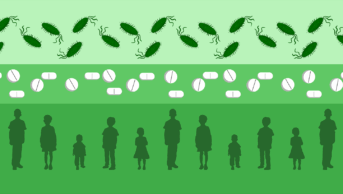
Shutterstock.com
A scheme using financial incentives to reduce antibiotic prescribing has worked, Public Health England (PHE) has said.
Using data collected from the Clinical Practice Research Datalink between April 2011 and March 2017, researchers looked at prescribing rates following the introduction of the NHS England Quality Premium, which rewards clinical commissioning groups for cutting antibiotic prescribing. They found that the number of prescriptions for antibiotics issued by GPs for common respiratory infections fell by 3%.
The results, published in the
Journal of Antimicrobial Chemotherapy
on 28 June 2018, also showed a 2% fall in the rate of broad-spectrum antibiotic prescribing following the introduction of the national incentive scheme in April 2015.
Alan Johnson, study author and head of surveillance for healthcare-acquired infections and antimicrobial resistance at PHE, said: “This is one of a range of successful interventions used to support GPs to reduce levels of prescribing.
“It is important that we continue to reduce the levels of inappropriate prescribing if we are to prevent further increases in drug-resistant infections.”
The Quality Premium scheme offers financial incentives to clinical commissioning groups — which decide how funding is spent on health services in their area — for meeting several criteria.
In 2015–2016, this included measures to reduce total antibiotic prescribing by 1% and a 10% reduction in prescriptions for broad-spectrum antibiotics.


